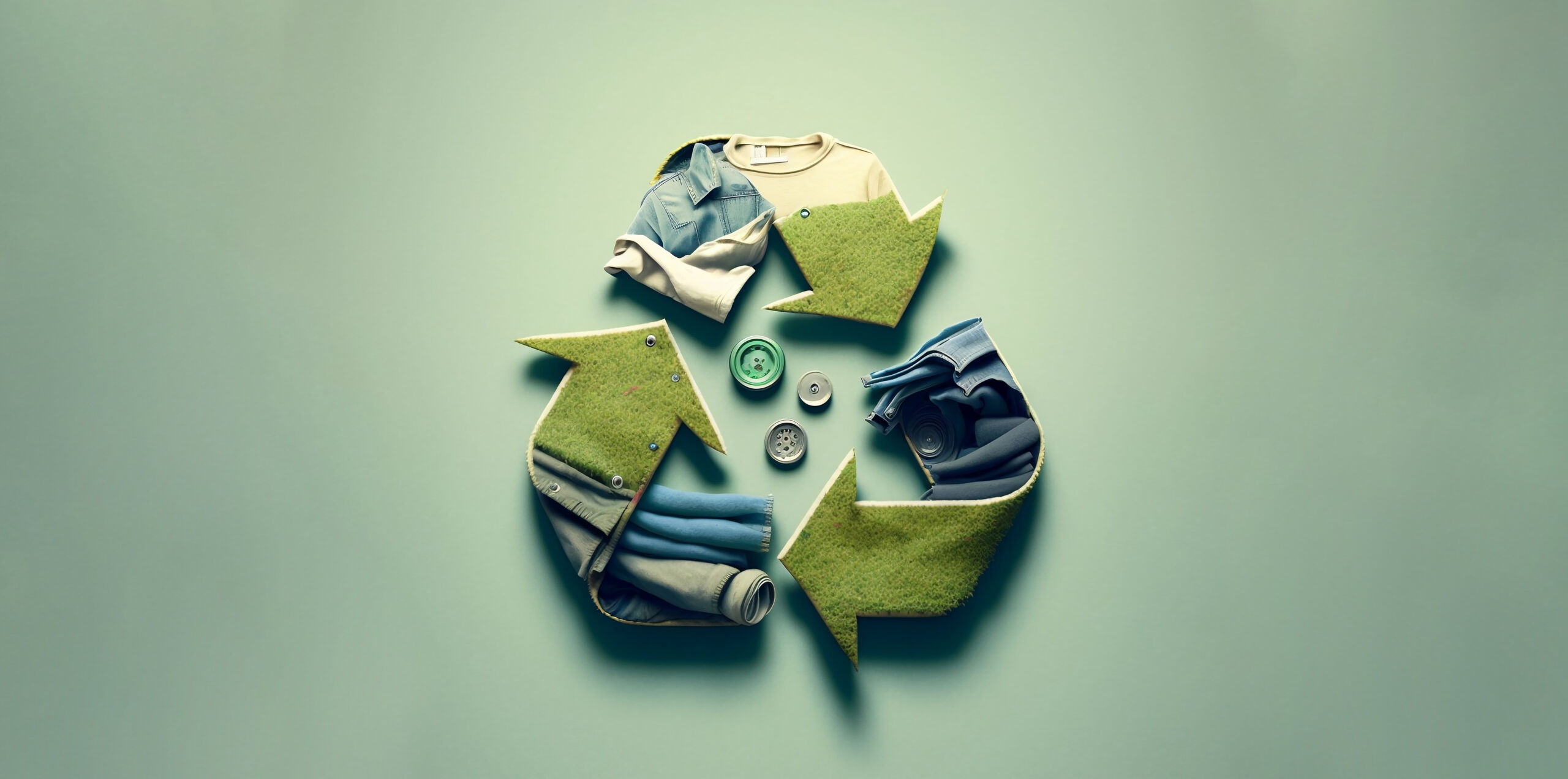Keep Ahead of the Contour by Checking Out Cutting-edge Style Fads
In a sector as vibrant as style, staying ahead involves more than simply complying with current patterns-- it demands an expedition of development. Smart textiles, for example, are transforming garments right into practical masterpieces, while 3D printing is revolutionizing design processes with its personalized, waste-reducing capabilities. As sustainability comes to be a cornerstone, innovations like environmentally friendly materials and circular fashion techniques are improving ecological responsibility - Cape Town Sustainable Fashion. In addition, the merging of modern technology and fashion heralds a new age of consumer engagement. Just how, then, can these emerging patterns redefine the future of style, and what ramifications do they hold for brands seeking to flourish in this advancing landscape?

Accepting Smart Textiles
Over the last few years, the garment industry has seen a transformative change with the integration of smart textiles, a sophisticated innovation that mixes modern technology with material. This evolution stands for not only a fusion of aesthetic appeals and functionality yet additionally a substantial leap in the direction of sustainability and personalization in vogue. Smart fabrics, likewise called e-textiles, embed advanced electronic devices such as sensors and conductive threads within the fabric, allowing garments to communicate with the wearer or the setting.
These textiles are made to keep track of physiological criteria, such as heart rate or body temperature level, providing real-time health analytics. Beyond health applications, wise fabrics are additionally being used for adaptive clothes, which can transform shade or pattern in feedback to ecological stimulations, thus using a vibrant fashion experience.
Furthermore, the development of energy-harvesting textiles that produce power from activity or sunlight is leading the way for self-sufficient wearable modern technology. This technology is appealing to eco aware customers and developers intending to minimize the environmental footprint of fashion. As r & d in this area advancement, wise fabrics are expected to come to be significantly prevalent, reshaping the landscape of contemporary fashion with their multifunctional capacities.
The Surge of 3D Printing
Revolutionizing the manufacturing landscape, 3D printing has actually arised as a game-changer in the style industry. This sophisticated modern technology has made it possible for designers to push the borders of imagination, generating elaborate and customized garments that were previously unimaginable. By leveraging electronic style and additive production, 3D printing assists in the production of complex geometries and patterns, allowing designers to try out brand-new structures and structures.
A noteworthy advantage of 3D printing in vogue is its capacity to generate on-demand, decreasing waste and minimizing supply needs. This efficiency not just optimizes production processes but likewise enables fast prototyping, enabling designers to bring their visions to life in a much shorter duration. Additionally, 3D printing sustains personalization somewhat unrivaled by traditional techniques, using tailored fits and distinct layouts customized to individual customer preferences.
The increase of 3D printing has actually likewise democratized style, making it easily accessible to emerging designers who can now fabricate high-quality items without significant economic investment in traditional production facilities. As technology remains to development, the fashion market is poised to harness the complete potential of 3D printing, checking out brand-new materials and techniques that will definitely redefine just how fashion is conceived and created.
Sustainable Fashion Advancements
As the fashion sector comes to grips with journalism need for environmental responsibility, lasting style advancements have emerged at the forefront of transformative change. The growing understanding of eco-friendly impact has fueled a shift in the direction of even more eco-conscious practices and products. Brand names and designers are now focusing on sustainability, integrating methods that decrease waste and reduce carbon impacts.
One significant advancement is the rise of circular style, which stresses recycling and upcycling to extend the lifecycle of garments. This strategy not only decreases waste yet additionally motivates customers to adopt a much more mindful strategy to apparel consumption.
Another breakthrough exists in the adoption of innovative dyeing methods that utilize natural dyes or waterless procedures, thereby reducing the huge amounts of water and chemicals typically made use of in textile dyeing. In addition, innovations in biotechnology have caused the development of lab-grown leather and materials, offering eco friendly and cruelty-free options to conventional products. Via these pioneering efforts, the garment industry is making meaningful strides towards a more lasting future.

Tech-Integrated Clothing
Tech-integrated garments represents a groundbreaking combination of fashion and technology, reshaping just how individuals engage with their clothing. This ingenious domain name is web link marked by the inclusion of clever fabrics and embedded electronic parts, boosting both capability and visual allure. From fitness trackers installed in sportswear to warmed jackets regulated using smart device apps, tech-integrated garments supplies consumers unmatched benefit and adaptability.
Pioneering brand names are driving this pattern, concentrating on creating garments that reply to ecological stimuli or customer commands. As an example, some garments can alter color or pattern in feedback to temperature level changes, while others integrate biometric sensors to monitor health and wellness metrics like heart rate or stress and anxiety levels. The seamless integration of technology right into fabrics additionally prolongs to ecological sustainability, with initiatives to create self-cleaning textiles or garments that adjust to weather, thus minimizing the demand for several layers.
Moreover, the development of wearable technology is not simply limited to clothing however extends to devices like watches and eyewear, more widening the range of tech-integrated fashion. As the market remains to introduce, the capacity for modification and personalization in garments grows, offering consumers special, tech-enhanced style experiences that satisfy their private demands and preferences.
Future of Virtual Fashion
Recently, the future of online style has actually become a transformative pressure within the market, leveraging advancements in digital modern technology to redefine exactly how fashion is produced, experienced, and taken in. By incorporating augmented reality (AR), digital fact (VIRTUAL REALITY), and 3D layout tools, developers can currently craft interactive and immersive experiences that transcend typical fashion boundaries. Digital style permits for the creation of garments that exist find solely in digital atmospheres, using unlimited possibilities for advancement without the restrictions of physical manufacturing.
This digital change not only offers opportunities for creative expression yet additionally addresses sustainability concerns integral in standard fashion techniques. Cape Town Sustainable Fashion. By eliminating the demand for physical sources, digital style decreases waste and reduces carbon impacts. In addition, the rise of online fashion aligns with the enhancing customer need for tailored and distinct experiences, as virtual garments can be personalized and customized to specific choices easily

Verdict
The fashion business's future lies in the integration of lasting techniques and cutting-edge modern technologies - Cape Town Sustainable Fashion. Smart fabrics and tech-integrated clothing are improving capability, while 3D printing offers chances for modification and waste decrease. Sustainable fashion, through environment-friendly materials and round approaches, shows a commitment to environmental stewardship. Additionally, online fashion is poised to redefine customer interactions. Adjusting to these trends is necessary for brands looking for to remain pertinent and affordable in this quickly advancing landscape.
In recent years, the fashion sector has witnessed a transformative change with the assimilation of clever fabrics, a sophisticated advancement that mixes modern technology with textile.As the fashion market site grapples with the pressing demand for ecological obligation, lasting fashion advancements have arised at the center of transformative change.In current years, the future of virtual style has arised as a transformative pressure within the market, leveraging improvements in electronic innovation to redefine just how style is developed, experienced, and consumed. The rise of digital fashion straightens with the raising consumer demand for individualized and special experiences, as virtual garments can be tailored and tailored to individual choices with simplicity.
The style sector's future lies in the integration of lasting methods and innovative innovations.